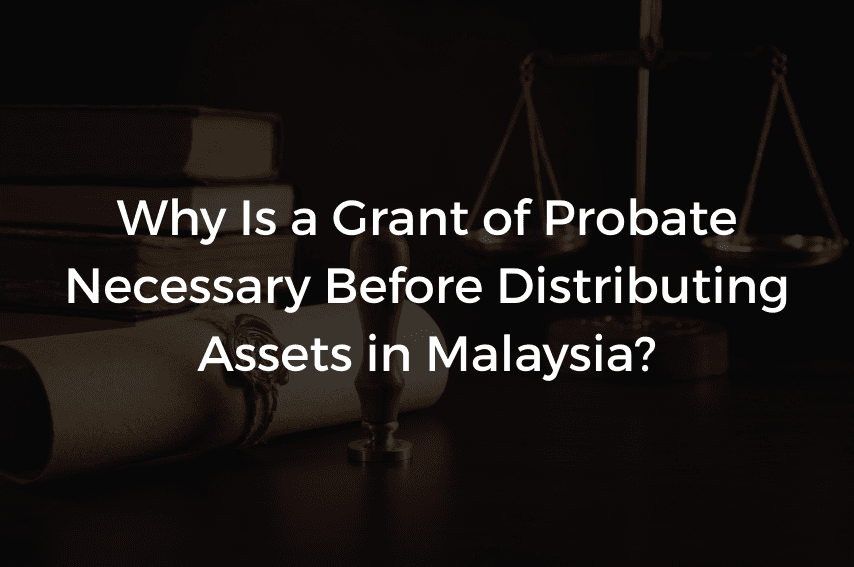When a person passes away in Malaysia, their assets cannot simply be distributed to family members or beneficiaries right away. Instead, the law requires a formal process of estate administration to ensure everything is done fairly and legally. One of the most important steps in this process is obtaining a Grant of Probate. This legal document, issued by the High Court, confirms the authority of the appointed executor to manage and distribute the estate according to the deceased’s will. Without it, banks, land offices, and other institutions will not release assets, which could lead to disputes or even legal complications. By securing a Grant of Probate, beneficiaries are protected, and executors have the legal safeguard they need to carry out their duties with confidence.
How Probate Protects Beneficiaries’ Rights
Probate plays a vital role in safeguarding the interests of beneficiaries. By confirming the validity of the will in court, it ensures that the estate is administered according to the deceased’s true intentions. This process prevents disputes among family members or third parties who might otherwise challenge the distribution of assets.
It also provides beneficiaries with legal assurance that they will receive what is rightfully theirs. Because the probate process requires transparency in identifying assets, settling debts, and recording distributions, heirs are protected from being bypassed or cheated during administration. Ultimately, probate strengthens trust and fairness by ensuring every beneficiary’s rights are respected under Malaysian law.

Why You Cannot Distribute Assets Without Probate
A Grant of Probate serves as the legal proof of an executor’s authority to manage the estate. Without it, banks, land offices, and other institutions will not release the deceased’s assets, as there is no formal recognition of who has the right to act. This safeguard prevents unauthorised persons from distributing estate property improperly.
Probate also ensures that all debts, taxes, and liabilities are settled first before any inheritance is given out, protecting creditors and maintaining compliance with Malaysian law. Most importantly, it protects beneficiaries by guaranteeing a fair and lawful distribution of the estate in accordance with the deceased’s will.

Why Financial Institutions Require Probate Before Releasing Assets
In Malaysia, banks, land offices, and investment bodies will not release or transfer estate assets without probate. A Grant of Probate serves as the official proof that the executor has the legal authority to act on behalf of the deceased’s estate.
Without this court-issued document, assets remain frozen, even if beneficiaries are clearly identified in the will. This safeguard is crucial because it prevents unauthorised access and ensures that only the appointed executor can manage the estate.
For financial institutions, probate provides legal certainty—reducing the risk of fraud, unauthorised claims, or liability for releasing assets to the wrong person. By insisting on probate, these institutions protect both the estate and the rightful beneficiaries.

Conclusion
Probate is far more than a legal formality — it is the essential safeguard that ensures estate distribution in Malaysia is carried out lawfully, fairly, and without unnecessary conflict. By obtaining a Grant of Probate, executors are formally recognised, beneficiaries are protected, and all debts and obligations are settled before inheritance is passed on. Skipping or delaying probate, on the other hand, can create serious financial and legal complications, from frozen assets to disputes among family members. For peace of mind and a smooth administration process, probate remains a crucial first step in honouring a loved one’
Need help navigating the probate process? At Sim & Rahman, we provide professional guidance to ensure smooth and lawful estate administration. Contact us today!




